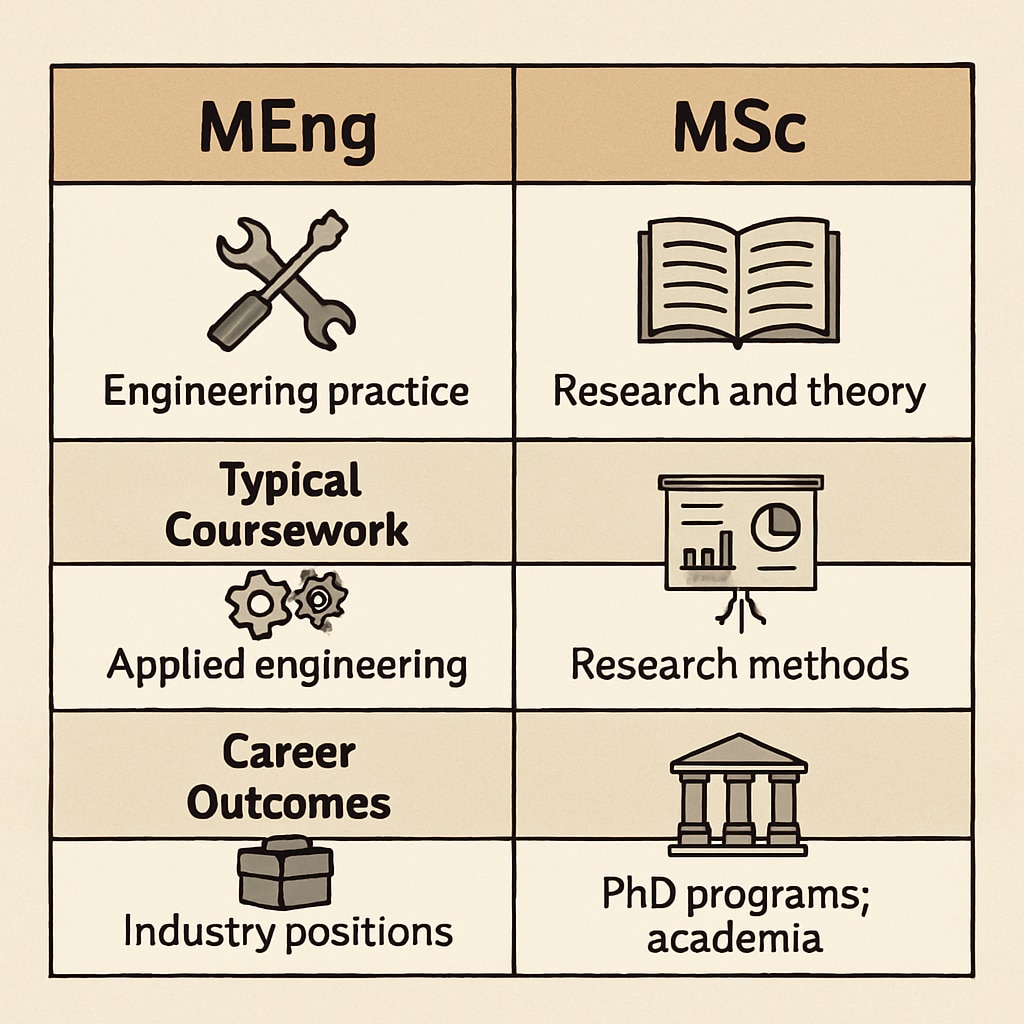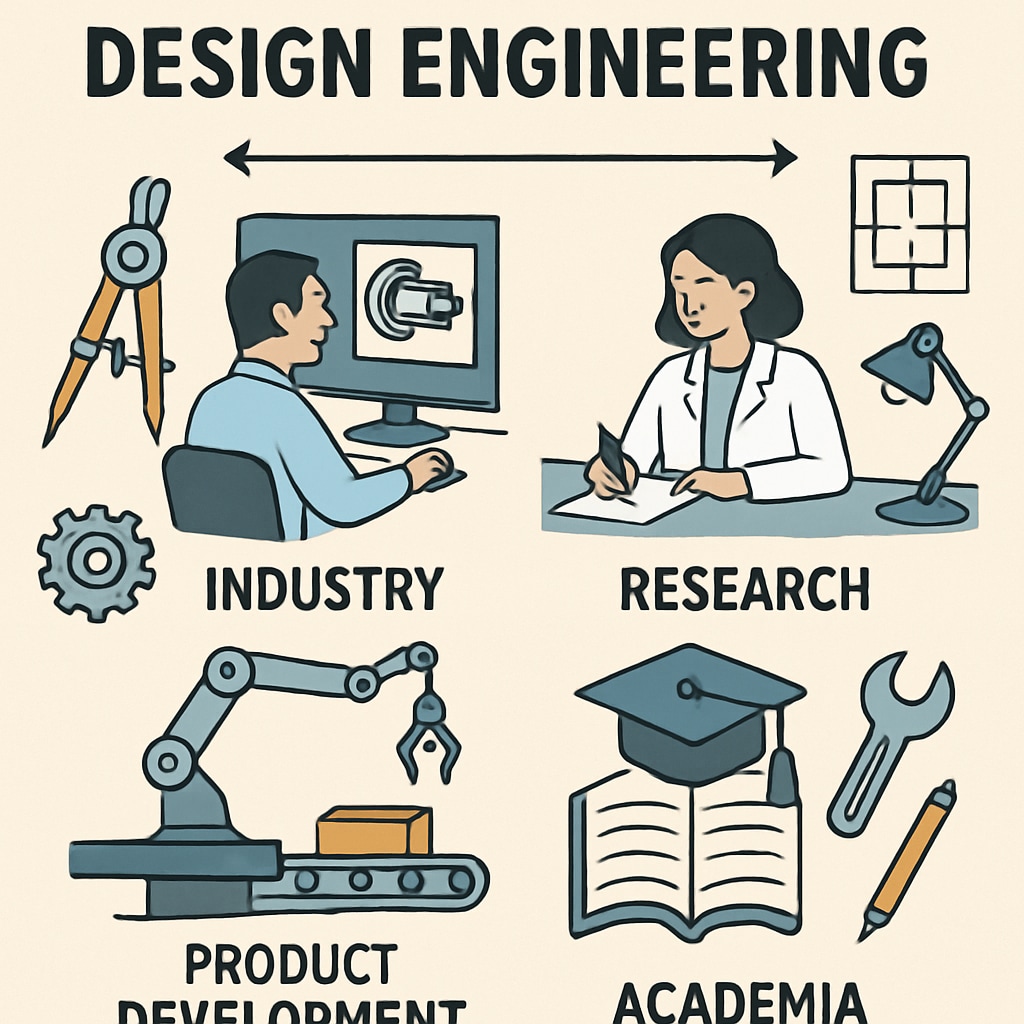When it comes to “design engineering, master’s degree, career prospects,” choosing the right academic path is crucial. For students passionate about blending creativity with technical expertise, design engineering offers a rewarding career. However, selecting between a Bachelor’s, Master of Engineering (MEng), or Master of Science (MSc) can significantly impact one’s opportunities. This article breaks down these options and their influence on career development to help students and their families make informed decisions.
Understanding the Basics: Bachelor’s vs Master’s Degrees
Before delving into the specifics of MEng and MSc programs, it’s essential to understand the foundational differences between undergraduate and postgraduate degrees. A Bachelor’s degree in design engineering typically provides students with fundamental knowledge and skills. Core topics often include product design, materials science, and systems engineering. These programs usually last four years and prepare graduates for entry-level roles or further studies.
In contrast, Master’s degrees offer advanced training and specialization. They are ideal for professionals seeking leadership roles, research opportunities, or expertise in specific niches of design engineering. Master’s programs generally require one to two years of study and are available in two main formats: MEng and MSc.
MEng vs MSc: Which Path is Right for You?
The decision between pursuing an MEng or MSc in design engineering depends on your career goals and interests. Here’s a closer look at the key differences:
- Master of Engineering (MEng): This degree focuses on practical application and is designed for those aiming to work directly in the industry. MEng programs often emphasize hands-on projects, internships, and collaboration with businesses. Graduates are well-equipped for roles in product development, manufacturing, and systems design.
- Master of Science (MSc): MSc programs are more research-oriented and delve deeper into theoretical aspects of design engineering. These degrees are ideal for students interested in pursuing doctoral studies or academic careers. MSc graduates often work in innovation, R&D, and specialized consulting roles.
For example, an MEng graduate might lead the development of a new consumer product, while an MSc graduate could focus on improving the materials used in that product through advanced research.

Career Impact of Design Engineering Degrees
Your choice of degree will directly influence your career prospects. The design engineering field is diverse, offering opportunities in industries ranging from automotive to renewable energy. According to Britannica, engineering roles are increasingly in demand as technology continues to evolve.
Here’s how different degrees shape career outcomes:
- Bachelor’s Degree: Entry-level roles such as design technician, junior engineer, or CAD designer.
- MEng: Positions in project management, systems engineering, and product development.
- MSc: Roles in research, academia, or high-level consulting.
Furthermore, some employers specifically seek Master’s degree holders for leadership roles, as postgraduate training demonstrates a higher level of expertise and commitment. For example, a Master’s graduate might lead multidisciplinary teams in designing next-generation sustainable technologies.

Making the Right Choice for Your Future
When choosing a degree, consider your long-term goals and personal interests. Here are some tips to guide your decision:
- Evaluate your career aspirations: Are you more interested in hands-on industry roles or academic research?
- Research program curricula: Look for courses that align with your interests, such as sustainable design or advanced manufacturing.
- Consider location and networking opportunities: Institutions often have ties to specific industries, which can impact internships and job offers.
In addition, consult professionals in the field for advice. Many engineering organizations, like the Institution of Mechanical Engineers (IMechE), provide resources for students exploring degree options.
Conclusion: Investing in Your Future
Choosing between a Bachelor’s, MEng, or MSc in design engineering is a significant decision that influences your career trajectory. While a Bachelor’s degree is a solid starting point, Master’s degrees open doors to advanced roles and specialized fields. Consider your goals, research programs carefully, and seek advice to ensure your educational investment aligns with your aspirations.
Ultimately, success in design engineering depends not only on your degree but also on your passion, dedication, and willingness to learn. With the right preparation, you can build a fulfilling career that shapes the future of technology and design.


